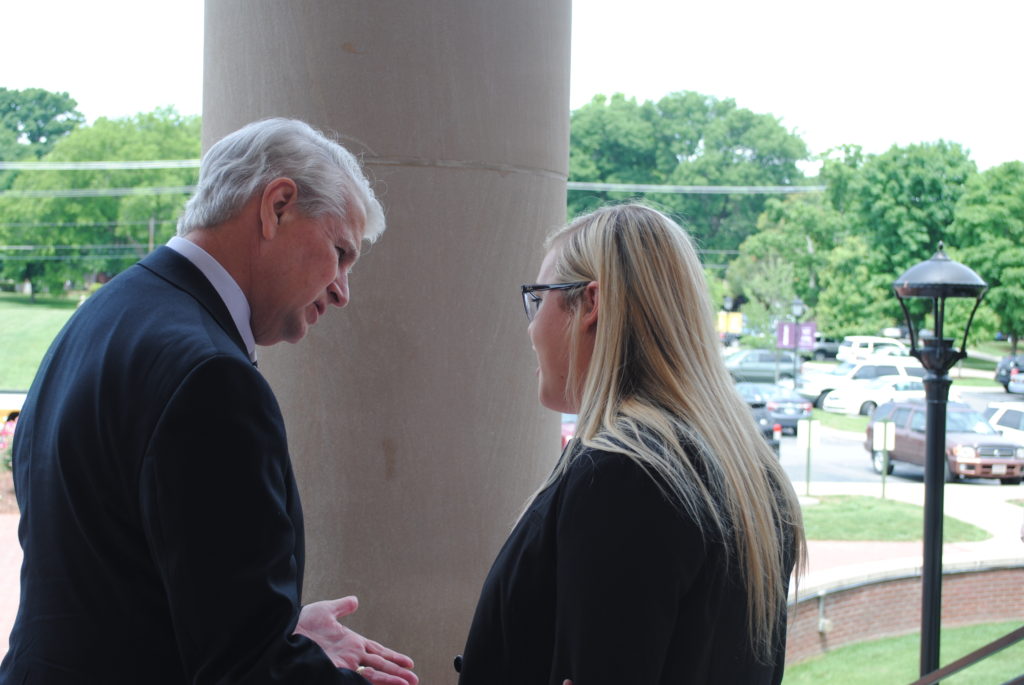
Gary Wade’s decision to retire from the Tennessee Supreme Court will be the first real test of the state’s new system for selecting judges.
With the stakes so high, what if Gov. Bill Haslam takes a while to pick a replacement?
Wade, one of the five justices on the state’s highest court, announced last week that he plans to retire Sept. 8. Haslam is expected to replace the Democratic judge with a Republican, tipping the balance of the Tennessee Supreme Court toward the GOP for the first time in generations.
State law doesn’t require Haslam to move quickly. But Allan Ramsaur, executive director of the Tennessee Bar Association, says Haslam shouldn’t wait long to choose his successor.
He worries about the possibility that a four-judge Supreme Court could split 2-2 on a case, with no one to break the tie. And he says it’ll be hard for the court to stay on top of its work: With Wade gone, other justices will have to write more opinions and review more cases.
“All of that, it does create a hardship,” he says. ”It puts the court in a difficult spot.”
Haslam has not announced any timetable for filling the vacancy. A spokeswoman says he plans to have a nominee in place by January, when state lawmakers reconvene for the 2016 legislative session.
The Tennessee Supreme Court, meanwhile, still plans to go ahead with a full slate this fall. No oral arguments have been canceled.
Michele Wojciechowski, a spokeswoman for the courts, says there should be no immediate impact on the court if it has just four members. Even when the court is at full strength, she says, individual justices will take themselves off cases when they have conflicts of interest, such as having been involved in a suit before being named to the court.
And, Wojciechowski adds, the chances that a single justice could determine a case are slim. Narrow rulings are rare for the Tennessee Supreme Court. Most are decided unanimously or with only one justice dissenting.
But over the long term, being one justice short could slow down the court’s work. It receives more than 700 requests a year to take up a case. A justice looks at each of those petitions, and as a group, they whittle that list down to about 70 cases they will hear.
Historic pick
But the workload of the court is a small consideration compared to the historic magnitude of picking Wade’s replacement.
Not only will the next justice shift the political balance of the Tennessee Supreme Court. He or she will also be the first chosen under the state’s new system for selecting judges.
Tennessee voters approved that system through a constitutional amendment last November. The measure gave state lawmakers the power, for the first time, to review the governor’s nominations to the Supreme Court and reject his selection.
Lawmakers still have to work out some of the specifics of how those reviews would work. But state Attorney General Herbert Slatery said in an opinion issued in March those details could not stop the governor from seating someone on the court.
Legislators should get a chance to review Haslam’s choice in January, says Brian Fitzpatrick, a law professor at Vanderbilt. But he predicts confirmation will go smoothly.
“Given that everyone’s from the same party, I don’t think anyone’s going to try to pull a fast one on the other,” he says. “I suspect what’s going to happen is the governor’s going to appoint a very moderate Republican and the legislature’s going to be fine with that.”
The situation might have been different, Fitzpatrick says, if Democrats still had control of either the legislature or the governor’s office.


